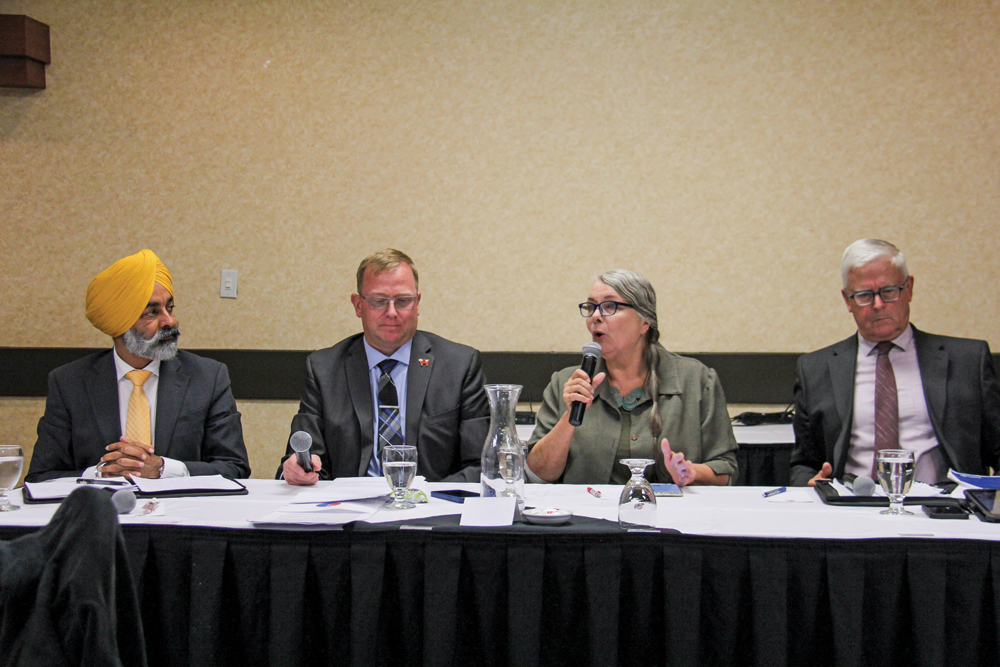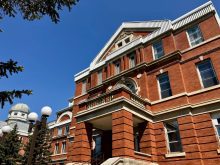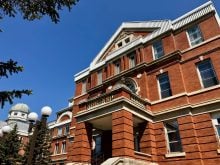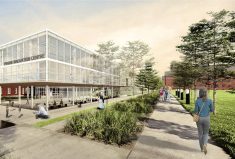Agriculture representatives from four of Manitoba’s political parties traded promises and verbal jabs over the education property tax, rural health care and water policy when they met at a Sept. 12 election forum.
The Winnipeg event was organized by the Manitoba Farm Writers and Broadcasters. Candidates answered questions provided by Manitoba ag groups and had 45 seconds to respond on each topic.
Why it matters: Candidates are counting down the last few weeks before the Oct. 3 provincial election.
Read Also
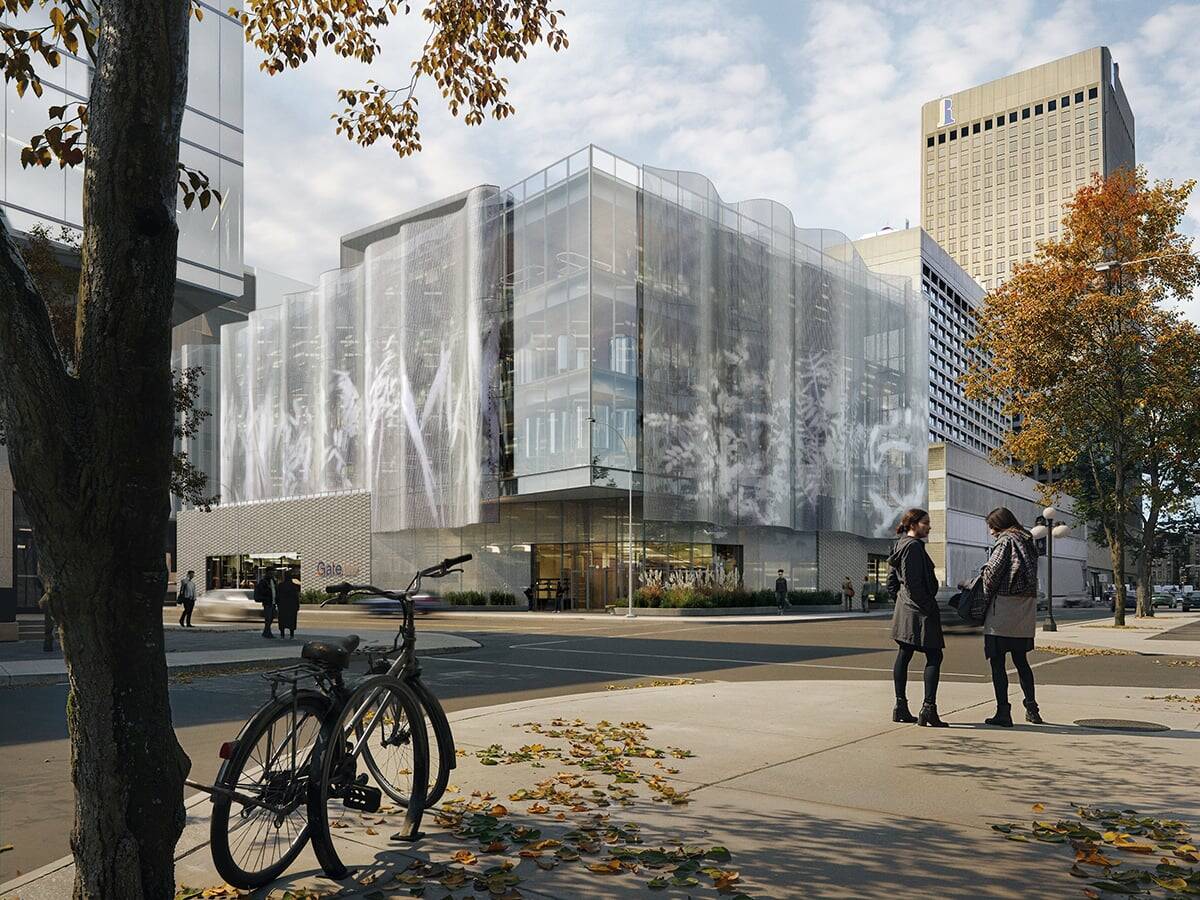
GATE project nears 50 per cent of fundraising goal
Farmers at the SaskWheat annual meeting hear GATE raises $42.65 million, but questions continue over cost of Cereals Canada project.
Education property tax, a priority set by Keystone Agriculture Producers, was first on the list. KAP wants to see continued phase-out of the tax from farm property and the development of an equitable education funding model.
Elimination of education property taxes was an electoral promise from the incumbent Progressive Conservatives in 2019, and it resonated with producers.
Late last year, the PCs announced they would need more time for the tax overhaul. The new system, which was to be in place for the 2023-24 school year, was pushed back to 2024-25, the Co-operator reported in early January.
In this year’s budget, the PCs promised to raise the Education Tax Rebate to 50 per cent, up from 37.5 per cent last year.
Derek Johnson, current minister of agriculture and PC incumbent for Interlake-Gimli, promised the tax rollback would continue, with the lost tax dollars made up from general revenue.
NDP ag critic and Burrows incumbent Diljeet Brar said that, while farmers should be treated fairly, the NDP would freeze the rebate at 50 per cent until a balanced education policy was in place.
Janine Gibson, Green party leader and candidate in Wolseley, said her party wants to develop “citizen assemblies” so people can contribute ideas. It’s not necessarily fair to make farmers pay as they do, she said, but education must be supported.
The Green platform suggests funding education through “corporate and personal income taxes rather than partly through property taxes.”
Neil Stewart, Liberal candidate for Lakeside and former RM of Piney councillor, said his party wants the rebate rolled back to 20 per cent. The government is borrowing money to pay for these rebates, he said.
The Liberal platform says it will, “reform the current property tax regime within the province and its patchwork of rebates,” and modernize the system.
Approach to water
Johnson said the government has identified areas where more water retention capacity is needed, and cited lobby efforts with the federal government for approval to build the Lake Manitoba and Lake St. Martin drainage channels in the northern Interlake.
That project, first announced by the former NDP government in 2013, has been stalled for years. In 2016, then-PC leader Brian Pallister took his electoral campaign to the shore of Lake Manitoba and promised to build the long-mired project, which is designed to prevent disastrous floods like the one in 2011.
The project stalled again in 2019 when an environmental assessment failed to satisfy federal regulators. In 2022, a judge ruled that the province had failed to adequately consult First Nations in the area.
“The channel will be built slowly,” Brar said, dragging out the last word. “What’s the progress so far on the channel?”
Brar said Manitoba has a wealth of knowledge on water management and lots of research, but needs to bridge the gap between that knowledge and farmers through a focus on extension.
The NDP platform cites work with municipalities to “improve surface-water protections and ensure there is adequate funding for waste-water management” to bring Lake Winnipeg back to health, and work with Indigenous communities to preserve at least 30 per cent of Manitoba’s water by 2030.
Gibson said the current government has “commodified” water. She referenced a proposal to build a silica sand mining facility in eastern Manitoba. Area residents, including Gibson, have been lobbying against the project for years, citing concerns for the health of the aquifer beneath the site.
The Green Party platform contains numerous water-related plans, including a note to strengthen manure management regulations in the Red River Basin “to eliminate manure run-off.”
Stewart said water-related incidents are likely to become larger, and the province needs to set parameters and recognize the need to be prepared.
Infrastructure and rural connectivity
In July, the Association of Manitoba Municipalities released a survey indicating that less than a third of rural Manitobans believe their cell service is reliable. Lack of high-speed internet is another perennial rural issue.
At the forum, Johnson said the provincial government needs to create an environment for business to succeed so they invest in communities, bring in families, and create need for more services.
Brar called out the PC government for closing agriculture offices.
“When we close ag office[s] and think that people can get expert advice on (the) phone, then we don’t have rural connectivity.”
In January 2021, the province announced it would close agriculture, crop insurance and lending offices in 21 communities. The impetus of the move, it said at the time, was the launch of a new, modernized delivery model that included an online chat function.
Stewart said internet access is a human right and its care shouldn’t be left to private industry.
The Green platform says the party wants to ensure rural and northern broadband includes local service providers to increase competition and quality of phone and internet services.
Rural crime
Safety and crime have been highlighted by KAP and the AMM.
Johnson said the PCs would continue to invest in the police. He took a jab at the NDP which, he said, had members that marched in “defund the police” demonstrations.
He also recalled one friend whose rural property was robbed and it was days later before police showed up.
Brar said the incident happened under the PC’s watch, noting the government froze funding to rural municipalities, leading to an inability to address rural crime.
In this year’s budget, the PCs said they would thaw a seven-year freeze on municipal operating funding.
Gibson and Stewart both argued that underlying roots of crime, such as poverty, must be addressed. Stewart called on the province to play a leading role in getting all three levels of government to provide more funds for policing.
Gibson linked the issue with her party’s desire to implement a guaranteed basic income.
Health care
Johnson said the province needs to retain its current healthcare workforce, a large portion of which he said is set to retire. He blamed this on the NDP, which he said knew this would be an issue in the late 2000s and didn’t address it.
PC health-care promises so far have included a pledge in the 2023 budget to invest $1.4 billion in capital health projects, including new hospitals in Neepawa and Portage la Prairie, and expansions of other rural hospitals.
Brar argued that the PC’s actions haven’t matched their words. Health care has been a major talking point in the NDP electoral campaign, and it has targeted issues including emergency room closures.
The party has pledged a new rural ER in Eriksdale, among other health-related promises. Training for more rural nurses, hiring more paramedics and doubling the rural doctor recruitment fund also feature.
“This is certainly the hottest topic in my area,” Stewart added.
He said he’d had a heart attack last winter, after which it took two hours to get to the hospital. There are many gaps in current paramedic service, he said.
“I’m just sitting here because I’m lucky enough that I got to the hospital and that I got great care when I got there.”
Residents want improved patient-to-worker ratios, paramedics reinstated and reliably open rural ERs, he said.
Gibson echoed Stewart, adding that sufficient staff must be trained. Mandatory overtime is “inhumane,” she said.
She also argued that education on health should be funded, and reiterated her party’s call for guaranteed basic income.
Other topics
Hampered by time limits, trade made a brief appearance during the panel, as did the need for agriculture research funding and labour.
Brar took jabs at the PC’s Crown lands reform, which saw several years of controversy before the province announced further changes to the system earlier this year and made further promises on the file.
Gibson said she knows the Greens won’t form government, but the province would benefit from a Green MLA.
Stewart also said MLAs need to work together.
“We do not want to become the U.S.,” he said.


